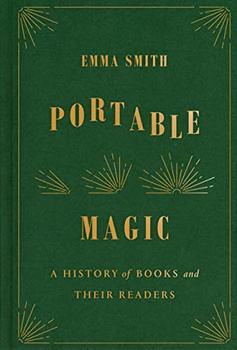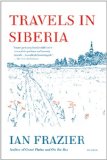Summary | Excerpt | Reviews | Beyond the book | Read-Alikes | Genres & Themes | Author Bio

Adventures with Russian Books and the People Who Read Them
by Elif BatumanThis is a book review of a book about a serious obsession with books. That Elif Batuman's literary fixation happens to be with Russian books almost seems arbitrary, but, in a way, also destined: Originally a linguistics major, Batuman (a Turkish American academic in comparative literature) chose Russian as her foreign language requirement, only to find the abstraction of linguistics giving way to the much more compelling stories, culture, and language of Russia itself. Looking back, Batuman writes, "Love is a rare and valuable thing, and you don't get to choose its object."
As a book reviewer who was also once a linguistics major ultimately drawn to literature, there is some inherent bias in my enthusiasm for this book. But that, in some ways, is the point of Batuman's work: Literature and life are always intersecting; the reader is bound to find symbols, comparisons, and significance at every turn; and one can't help but read one's life into the story - or the story into one's life.
All disclaimers aside, however, this book is both amusing and insightful. Batuman has a rare combination of gifts as an academic and a storyteller, and The Possessed takes the form of a collection of essays that's part literary criticism, part humor writing, part travelogue, and part memoir.
Batuman takes us on a literary romp through the obscure, but generally entertaining, facts and rambling tales surrounding the lives of Russian authors and their works - among them, Babel (who knew he was connected to the maker of King Kong?) and Tolstoy (Batuman tries to pass off a laughable, but not entirely implausible, proposal titled "Did Tolstoy Die of Natural Causes or Was He Murdered? A Forensic Investigation").
In this combination of wit and intellect, Batuman's style bears resemblance to Sarah Vowell, bringing a wry, comic voice to a nerdy, esoteric subject. Only in The Possessed could a graduate student named Joshua Sky Walker describe the 90-year-old daughter of Russian writer Isaac Babel as "hot." Or a famous professor of comparative literature give someone the finger in a parking lot. At one point, the narrator even dreams she is playing tennis with Tolstoy with a goose for a racket.
These would be the larger-than-life happenings of fiction, and yet Batuman's circumstances show she couldn't have made this ludicrous stuff up. In one episode, she takes on a stint as a researcher for the Turkey edition of a Let's Go travel guide, only to find that her aunt, an officer in the Turkish National Intelligence Organization, has enlisted the help of people all over the country to look out for her. A chauffeur picks her out of a crowd at a nightclub to take her home. A municipal water inspector somehow knows to meet her at the bus stop in Tokat.
Though some of Batuman's ramblings on the finer points of Russian literature bear the mark of a true fanatic, such immersion in the overwhelming details seems fitting for a book about obsession. Other Russian enthusiasts may in fact find these passages the most riveting, but for the less well-versed, Batuman's prose seems liveliest in the main narrative drawn from her academic life - a thread she carries throughout.
What makes Batuman's tales of absurdity more than just entertaining, though, is her genuine belief in the notion that books change you. It's fitting that one of the works that's most deeply affected her is Foucault's essay on Don Quixote, which leads Batuman to realize that in setting out "to find - or create - resemblances between the word and the world," Quixote had "broken the binary of life and literature. "Don Quixote," she writes, "could only have been written by someone who really loved chivalric romances, really wanted his life to resemble them more closely, and understood just what it would cost."
In a similar way, Batuman has also made her life vulnerable to books. The title of her book is drawn from Dostoevsky's novel The Demons, which was originally translated as "The Possessed." Yet it also stands for falling under the kind of spell that only the truly impassioned could understand. As Batuman writes, "Wasn't the point of love that it made you want to learn more, to immerse yourself, to become possessed?"
There is a redemptive quality to Batuman's belief that "if the answers exist in the world or in the universe… [literature is] where we're going to find them." As a fellow lover of books, who am I to disagree?
![]() This review
first ran in the March 17, 2010
issue of BookBrowse Recommends.
This review
first ran in the March 17, 2010
issue of BookBrowse Recommends.

If you liked The Possessed, try these:

by Emma Smith
Published 2022
A history of one of humankind's most resilient and influential technologies over the past millennium—the book.

by Ian Frazier
Published 2011
A dazzling Russian travelogue from the bestselling author of Great Plains
Your guide toexceptional books
BookBrowse seeks out and recommends the best in contemporary fiction and nonfiction—books that not only engage and entertain but also deepen our understanding of ourselves and the world around us.